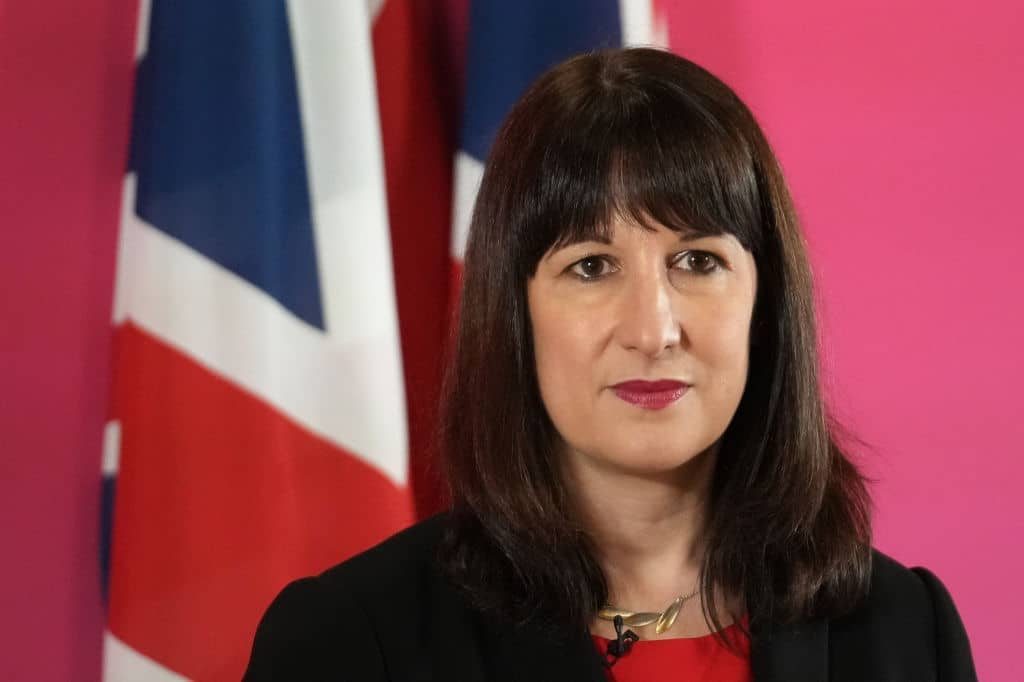While the Tories limp from one scandal to the next, an opportunity has opened up for Labour when it comes to courting business.
Although it’s unlikely many voters elected Boris Johnson into office because they trusted his moral compass they did at least think he would deliver on his promise of sunlit uplands. But two years and a pandemic later, government spending as a percentage of national income is set to top 45 per cent, we’ve yet to ignite a bonfire of EU regulations, inflation has reached 5.4 per cent (and still rising) and the cost of living crisis is rapidly worsening. Voters are starting to question whether, with the Conservative party, the economy is really in a safe pair of hands.
But can Labour position itself as the new party of business instead? At a speech in Bury last week, the shadow chancellor tried to grasp that mantle when setting out her ‘five point plan for a stronger economy’.
The two main parties are becoming increasingly aligned on economic issues
Reeves may have been shooting at an open goal, but still she missed the target. In her speech she made no mention of coronavirus restrictions and offered no mea culpa for Labour’s unwavering support for tougher measures over the past two years. While Boris Johnson, to his credit, was resisting immense pressure for another lockdown in the run up to Christmas, Labour was ready to support more stringent controls. On ‘Freedom day’ last year the Labour leader Keir Starmer said lifting restrictions was ‘reckless’ and called for the rules to carry on through the summer. It’s hard to see how Labour can reconcile this zeal for greater restrictions with a desire to be the political party that best represents businesses.
The shadow chancellor also criticised the Conservatives for tax raids while making clear that Labour would itself introduce a raft of new wealth levies. If Keir Starmer were prime minister his party would impose a windfall tax on oil and gas. This move would be more likely to undermine our energy security than prop it up. Labour would also cut VAT on energy bills while ploughing £28 billion into a ‘climate investment pledge’. The party would strip private schools of their charitable status – which would drive up costs for parents and lead to more children requiring state education, with the taxpayer footing the bill.
Labour would entirely scrap business rates, a much loathed but misunderstood corporate levy which firms must pay on the value of their premises. As it happens, economists left and right tend to think of business rates as a good tax. While businesses write the cheque, it is landlords who pay. Regardless, how would the party make up the £25 billion shortfall that the tax brings in?
Labour may be accusing the Conservatives of being ‘the party of high taxation because they are the party of low growth,’ but they are not proving any better with their proposals. High taxes deter enterprise and investment. They discourage people from working as much as they otherwise might. And the government spending that necessitates tax hikes often discourages economic activity and prevents innovation and competition. In short: high taxation is not a product of lower growth, it causes it: a point neither party seems to understand at the moment.
A new consensus appears to be emerging where the two main parties are becoming increasingly aligned on economic issues. Both Labour and the Conservatives are like addicts, constantly looking for the next fix, the next billion pounds that can be ‘invested’ in ‘creating jobs’ here or ‘levelling up’ there. And as the needs of one interest group are met through increased public spending, long-term health and rehabilitation become ever more distant concerns.
The latest data on the public finances show that, between April and December, the UK government borrowed nearly £13 billion less than the Office for Budget Responsibility had forecast. This is enough fiscal headroom to ditch the hike in National Insurance Contributions (NICs) planned for April, which would have raised about £12 billion. In doing so, our political class would demonstrate some understanding that they cannot keep spending more without recognising the trade-offs.
But so far No. 10 is doubling down on the commitment to the new levy. It follows a trend with many new, interventionist policies brought in by the Johnson administration. Banning adverts on jam, for instance. Blocking low-skilled visa routes. Bailing out failing companies, increasing employment regulation and signing us up to a global minimum corporation tax. When Rishi Sunak stood at the dispatch box last year, he even said the Conservatives were the ‘party of public services’.
Perhaps the pandemic drove our political parties to become addicted to spending and meddling – or maybe they were always inclined to be this way. Either way, Labour are clearly not yet ready to regain the trust of business.






Comments